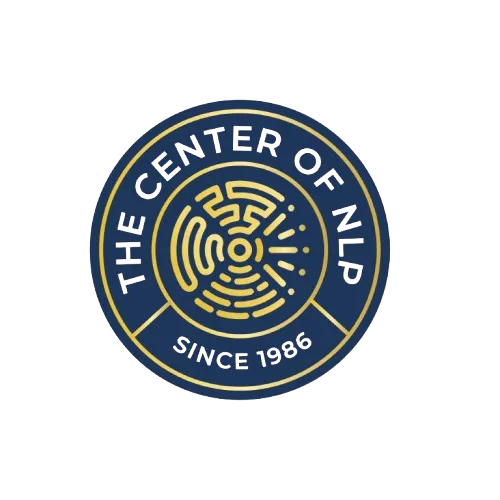
The Secrets of Effective Leadership: NLP Insights for Success
1. Introduction
In the world of personal and professional development, leadership plays a pivotal role in guiding individuals and teams towards success. One powerful approach to enhance leadership skills is Neuro-Linguistic Programming (NLP). NLP is a psychological technique that focuses on understanding the connection between our thoughts, language, and behavior. In this article, we will explore how NLP techniques can unlock the secrets of effective leadership and empower leaders to achieve their full potential.
2. Understanding NLP
Neuro-Linguistic Programming, commonly known as NLP, is a fascinating discipline that examines the dynamics between the mind, language, and behavior. It provides insights into how individuals perceive the world and how thisperceptioninfluences their actions. NLP equips leaders with a profound understanding of human behavior, enabling them to communicate more effectively and inspire their teams to reach new heights.
ExploreEffective Communication Mastery—Unleash the Potential of NLP Techniques in Your Daily Conversations!
3. NLP Techniques for Leadership
3.1 Anchoring
Anchoring is a powerful NLP technique used to associate a specific emotion with a particular trigger. In leadership, anchoring can be harnessed to create positive emotional states within team members. Byestablishinganchors for confidence, motivation, and enthusiasm, leaders can foster a more productive and engaged workforce.
3.2 Rapport Building
Building rapport is essential for effective leadership. NLP offers a range of techniques toestablishstrong connections with team members, fostering an environment of trust and mutual respect. By mirroring body language, matching communication styles, andgenuinelylistening, leaders can build authentic relationships that enhance teamwork.
3.3 Reframing
Reframing is the art of viewing situations froma different perspective, allowing leaders to transform challenges into opportunities. NLP provides leaders with the tools toreframenegative situations, enabling them to inspire their teams to approach difficulties with a problem-solving mindset.
3.4 Modeling Excellence
Modeling is a technique in NLP that involves emulating the successful strategies of others. In leadership, this meansobservingand adopting the behaviors and characteristics of exceptional leaders. By modeling excellence, leaders can set an example for their team, encouraging them to strive for greatness.
4. Communication and Language Patterns
4.1 Effective Communication
Clear and concise communication is paramount in leadership. NLP offers various communication techniques to help leaders convey their ideas with precision and impact. Through improved communication, leaders can minimize misunderstandings,facilitatecollaboration, and provide valuable feedback to their team members.
4.2 Language Patterns for Influence
Language patterns can significantly influence how messages are received and interpreted. NLP equips leaders with persuasive language techniques that motivate and inspire their teams. By using language that resonates with team members, leaders can drive positive change and create a motivated workforce.
5. Emotional Intelligence and Empathy
5.1 Developing Emotional Intelligence
Emotional intelligence is a critical trait for effective leadership. NLP provides leaders with the tools to develop self-awareness and self-regulation, allowing them to navigate challenging situations with composure and empathy.
5.2 Practicing Empathy
Empathy is the ability to understand and share the feelings of others, and it plays a vital role in building strong relationships within a team. NLP exercises can help leaders develop empathy, creating a supportive and compassionate work environment.
6. Goal Setting and Achievement
6.1 Utilizing NLP for Goal Setting
Setting clear and achievable goals is essential for effective leadership. NLP techniques enable leaders to set compelling visions and empower their team members to align their efforts with theseobjectives. Visualization exercises can enhance the commitment to achieving shared goals.
6.2 Overcoming Limiting Beliefs
Limiting beliefs can hinder leadership effectiveness. NLP helps leadersidentifyand overcome these mental barriers, instilling a sense of belief and confidence in themselves and their team.
7. Conflict Resolution and Team Building
7.1 Conflict Resolution Strategies
Conflicts are inevitable in any team setting, but how leaders handle these situations can significantlyimpactteam dynamics.NLP-based conflict resolution strategiespromote open communication and understanding, leading to a harmonious work environment.
7.2 Team Building with NLP
NLP techniques can strengthen team cohesion and collaboration. By understanding individual communication styles andutilizingNLP exercises, leaders can forge a united and high-performing team.
8. Leadership Mindset and Attitude
8.1 Developing a Growth Mindset
A growth mindset is essential for continuous improvement in leadership. NLP helps leaders cultivate this mindset by focusing on learning from failures, embracing challenges, and seeking opportunities for growth.
8.2 Maintaining a Positive Attitude
Leadership often involves navigating through difficulties. NLP equips leaders with strategies tomaintaina positive attitude, inspire optimism in their team, and overcome obstacles with resilience.
9. Enhancing Decision-Making
Effective decision-making is crucial for successful leadership. NLP toolsassistleaders in evaluating options, balancing intuition and logic, and making well-informed decisions thatbenefitthe team and organization.
10. Conclusion
In conclusion, Neuro-Linguistic Programming (NLP) offers a treasure trove of insights and techniques for effective leadership. By understanding and applying NLP principles, leaders can enhance their communication, emotional intelligence, and decision-making skills. Through anchoring positive emotions, building rapport, and modeling excellence, leaders can inspire and motivate their teams towards achieving remarkable success. NLP is a powerful tool that empowers leaders to unlock their full potential and create an environment of growth and prosperity.
For inquiries and further information, kindly reach out via email to [email protected]
FAQs (Frequently Asked Questions)
1. What is NLP, and how does it relate to leadership?
Neuro-Linguistic Programming (NLP) is a psychological technique that explores the connections between thoughts, language, and behavior. In leadership, NLPprovidesvaluable insights into human behavior, enabling leaders to communicate effectively and motivate their teams towards success.
2. How can NLP helpinconflict resolution?
NLP-based conflict resolution strategies emphasize open communication and understanding. By applying NLP techniques, leaders can navigate conflicts with empathy, fostering a harmonious work environment.
3. Can NLP improve decision-making skills in leaders?
Yes, NLP offers tools for enhancing decision-making in leaders. By evaluating options, balancing intuition and logic, and focusing on growth, leaders can make well-informed decisions thatbenefittheir teams and organizations.
4. Is empathy crucial for effective leadership?
Absolutely! Empathy plays a vital role in building strong relationships within a team. NLP exercises can help leaders develop empathy, creating a supportive and compassionate work environment.
5. How can NLP be used for goal setting?
NLP techniquesenable leaders to set compelling visions and empower their team members to align their efforts with theseobjectives. Visualization exercises can enhance commitment to achieving shared goals.
Check Out For more:

